I began working in the flexible office sector some 20 years ago and even then I could see its potential to support how people actually wanted to work: flexibly and on their own terms.

It is only relatively recently, however, that the full potential of the industry has started to become clear. Our industry is growing at around 14% per year as companies choose our low-risk, low-capex model over traditional leases.
We think that a permanent, structural shift in the way that companies source workspace is happening, not only from a property point of view but from a user point of view as well. In Landmark centres around the UK, it is obvious that people aren’t working a whole day in any one space. Instead, they move around, choosing space based on the work at hand and enabled by digital connectivity.
Despite all the necessary change that is happening in our sector, I do not believe that the younger generation wishes to revolutionise the working world and remake it on their own terms. Much of how we have worked in the past remains relevant. However, change is required, if not to make people happier and more fulfilled – although both are laudable ambitions – but to improve workers’ productivity, something that is crucial to the ongoing health of UK plc. Even very traditional major corporates are starting to understand this.
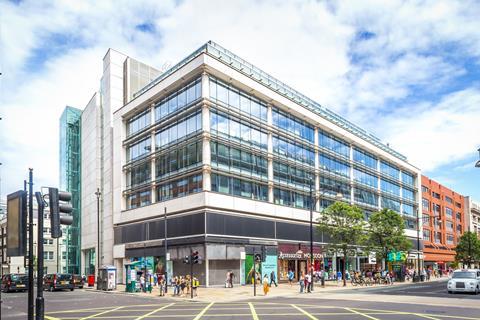
Above all else, what people need is an environment in which they feel comfortable and able to work to the best of their ability. Flexibility is key to that and what we’re currently seeing is a new generation of flexible office providers that understand that the key to flexibility isn’t just in terms of flexible leases – although that too is important – but the physical spaces they provide.
The flexible workspace market has responded to this in a variety of ways. The prevailing fashion for some time was to create spaces that were as young and hip as possible, with funky lighting and designer furniture. Some operators seemed to be falling over each other to come up with the next bright idea, whether that meant beer on tap, wellbeing classes or table football. More recently, however, operators have realised that different companies and individuals have different needs and have been thinking harder about how to carve out a niche in the market that genuinely delivers for their clients.
This is certainly the case at Landmark: we know that we need to be very clear about the position we’re taking in the market. And the position we’re taking is very much about providing professional workspaces that are modern, smart and business-like rather than trying to accommodate the latest fad in office design. They are bright, engaging and well-designed spaces, but they also project an image of professional people doing serious jobs.
Zoning concept
We currently have 44 centres in the UK, but we’re growing at around 15% a year and turnover now stands at in excess of £100m. Given the rate of growth, around 18 months ago we thought it was time to take stock and think more deeply about the concept that sits behind our offering. The result of that thinking was a decision to begin zoning our buildings, so that our clients were able to access multiple different types of workspace under one roof. Coupled with our outstanding service, we call this approach ‘professional working’.
While the traditional office is part of the offering, we also provide our clients with social space, where they can relax and have a coffee or a meal. We also provide collaborative space where they can sit in a group and discuss ideas in an open and collegiate environment, as well as a variety of meeting spaces, which range from very relaxed meeting rooms to formal boardrooms.
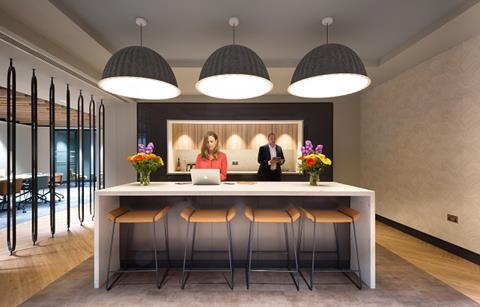
In addition, we also provide private spaces where individuals can work without distraction. We strongly believe that this is a trick that many of our competitors miss. Yes, there are a great many advantages to open, collaborative spaces, but people also need to be able to put their heads down and focus, whether that’s for 10 minutes to compose a crucial email or two hours to write a report. We don’t expect students to be able to concentrate while being distracted by the hiss of an espresso machine and shouldn’t expect professionals to be able to do so either.
The first business centre created using our zoning concept was in Victoria, which was joined in quick succession by our New Cavendish Street centre. Turning the concept into reality was something of a lightbulb moment. Quite simply, clients loved the new spaces, to such an extent that we have gone back and refurbished existing centres along the same lines. To date, we have completed five such projects, with another seven due by the end of 2018, with more to come in 2019.
The result of that work is that we’re retaining our clients at a higher rate than ever before. We have always retained more than 70% of our customers but we’re now above 80%, so the business benefits of the concept are clear. The feedback we have had from client surveys also serves to illustrate how much people appreciate the thought that has gone into making their working lives as efficient and effective as possible.
Human touch
Of course, physical spaces can only take you so far; in order to build genuine customer loyalty, what is required is the human touch. It is for this reason that we have also doubled down on providing truly exceptional customer service, with a professionally trained team at every one of our centres. We’ve concentrated on training our people to think of themselves as working for our clients rather than for us. Our clients love this approach: when we do a survey we get an unbelievably positive response about the helpfulness and professionalism of the people we employ.
As the industry matures, people and the service they provide will become more and more important. Clients expect more than a property solution – they want an environment to attract top talent and spaces that help their teams to be more productive. This cannot be delivered without outstanding people. To support this, we are rolling out a training programme with the Institute of Customer Service, with the aim of being officially endorsed by the end of 2019.
So the world of work has evolved and flexible workspace providers are responding by providing ever more tailored solutions to meet the specific needs of their clients. At Landmark, we are confident that we have found our sweet spot. After all, that’s what our clients tell us. 9
John Spencer, chief executive, Landmark
About Landmark
Landmark, a leading provider of professional workspaces, is taking the serviced office market by storm. Going from strength to strength, with new buildings across the City and West End, it has big ambitions to grow, offering a different proposition to many of the current players. With a 15% growth year on year, it now has more than 1m sq ft of office space with 44 buildings in London and across the UK. With a 75% client retention rate and the introduction of a new service model in the last year, customer service is at the heart of what Landmark does.

PW Perspectives Supplement Winter 2018
- 1
- 2
- 3
- 4
- 5
- 6
- 7
- 8
- 9
- 10
- 11
- 12
- 13
- 14
 Currently reading
Currently readingFlexible working is crucial to ongoing health of UK plc





































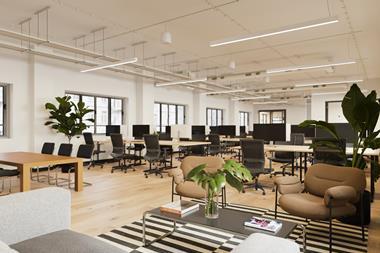
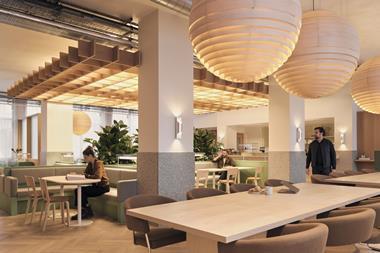


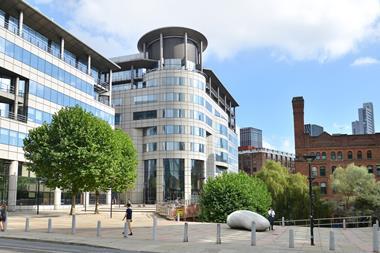

No comments yet